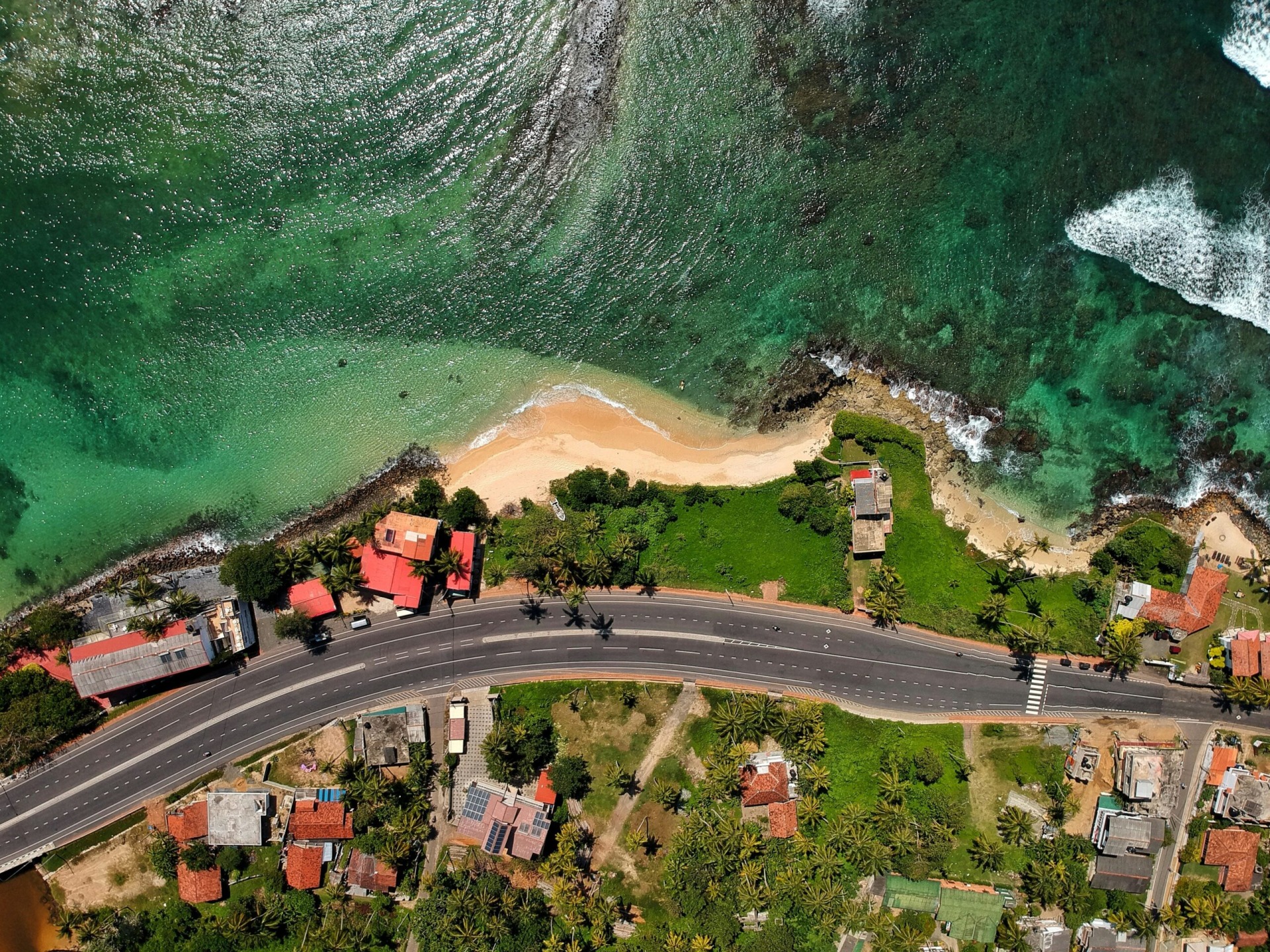Dual citizenship is a situation whereby an individual is a citizen of at least two countries concurrently. Legal issues are something that it provides both benefits and challenges. This requires prior knowledge of the laws and the process that is followed.
This article will show how a dual citizen can acquire land in Sri Lanka, emphasizing why a dual citizen should own land, legal requirements, and other processes and factors that the latter should consider when investing here.
Understanding Dual Citizenship in Sri Lanka
The Citizenship Act deals with persons who are dual citizens of Sri Lanka. It will also enable people who have obtained citizenship of another country to have and reassume Sri Lankan citizenship as well. It makes sure that he or she gets most of the privileges of a citizen of Sri Lanka apart from a few restrictions.
To become a dual citizen in Sri Lanka there are certain conditions to be met among which are being of Sri Lanka origin as well as attaining citizenship of another country. It also entails meeting residency tests, presenting bonds to Sri Lanka, and doing the proper legal formalities.
Further, they have the right to own property even though there are some restrictions. For example, holding public voting in elections may be limited.
Legal Framework for Land Ownership in Sri Lanka
Sri Lanka’s rights of land ownership legislation and policy are mainly aimed at safeguarding national interests as well as individuals. It mainly operates on the political side of citizens and non-citizens when it comes to owning property. For dual citizens, this becomes relevant in how they are treated under the law.
It will be pertinent to mention that Sri Lanka’s laws very much limit foreigners from owning the land. For more details on the restriction on foreign land ownership, you can read the article we previously wrote on this topic, Can Foreigners Buy Lands in Sri Lanka.
However, there exist a few points to consider for investors with dual citizenship in the purchase of a property. It entails the documentation process, the legal issues likely to crop up, and the need to adhere to the Sri Lankan laws as well as the international laws.
Can Dual Citizens Legally Buy Land in Sri Lanka?
The foreigner being a dual citizen is allowed to buy the land in Sri Lanka. As per the law of Sri Lanka, they were granted the status of citizens of Sri Lanka. Hence they have every right to buy this property like anyone else in Sri Lanka or for that matter in any part of the world. Nevertheless, legal issues concerning the purchase of the property should not be neglected to meet the requirements of the activity.
Currently, few legal provisions regulate the process of buying land by dual citizens. This entails having to ensure that registration with the land registry is done, that the title to the land is clean, and that there are no local by-laws to be complied with. Hence, those who have dual citizenship should ensure that they have adequate information on these provisions, and in case of any complexities, they should approach the right lawyers.
Types of Land Available for Purchase by Dual Citizens
Residential Properties
Citizens with dual nationality can acquire a range of housing in Sri Lanka, including conventional homes in the countryside or villages as well as buildings for a large number of residents in large cities, including Colombo. Thus, it is easy for dual citizens to buy residential property out of all types of land since few legal restraints hinder such processes. The need to buy property or holiday homes in Sri Lanka makes this property a perfect choice for such customers.
Commercial Properties
Buying commercial real estate is a viable option for dual citizens interested in business enterprises. In Sri Lanka, commercial property can include anything and everything, from factories to offices, stores, shops, and more. These features are good for people who plan to start or develop businesses in such areas as tourism, commercial business, or manufacturing industries.
Agricultural land
The agricultural land is a good choice for dual citizens and people who want to engage in agriculture, agricultural business, or management of the lands. Sri Lanka is also suitable for agribusiness activities like tea, rubber estates, and spice gardens since the soil is favorable and the climate is still good for production. It is also important to be informed of the regulation as to how ownership of agricultural land is being used by dual citizenships since they are less restricted than those of foreign nationals. These may include use and size restrictions in locations with protective or sensitive environmental conditions.
Coastal and Beachfront Properties
In Sri Lanka, land with a coastal or coastal location is highly desired. The above properties can be bought through a citizenship-by-investment program where the buyer is a dual citizen of the country and can use the property for his use for leisure or as a long-term investment in the tourism industry. However, these features are often accompanied by additional laws, especially regarding development restrictions and environmental protection. Buyers should be aware of any restrictions or obligations relating to coastal property ownership as the Sri Lankan government places a high priority on protecting coastal habitats.
Process of Buying Land as a Dual Citizen
The procedures that one has to follow when buying land in Sri Lanka when one is a dual citizen include the following. Fundamentally what you need to do is source for the property and then determine its price. And you must see whether it corresponds to what you want. In that case, one has to engage the services of a legal assistant whose duties include conducting title searches and drawing up contracts as well as other legal formalities. There are legal documents which are, the title deed of the property, identification of the owner of the property, and any other documents for the transfer of the property. Besides, if a person wants to buy a house and other properties in the Republic of Sri Lanka, it would be wise to consult a real estate agent, or even a lawyer in a legal transaction.
Financial Considerations for Dual Citizens
Cost of land purchase: stamp duty, legal fees, taxes
Apart from purchasing costs, other costs are incurred to acquire land in Sri Lanka, which include stamp duty, taxes, and legal fees. Besides saving enough money for these uses, a dual citizen should have adequate knowledge of the other financial impact of the transaction.
Mortgage availability and financing options
There are different financial possibilities for dual citizens. Some banks even allow two citizens to apply for a mortgage. However, getting a mortgage may require more documents and proof of income.
Money Exchange and Remittance of Funds
Fund transfer and currency conversion can play an important role in the land purchase process. Dual citizens should ensure that they comply with Sri Lankan laws and be aware of the rules governing foreign currency transactions.
Tax effects on dual citizenship
It is also notable that another related factor is tax since the individuals may have tax obligations in Sri Lanka and other citizenships. We suggest you consult with a tax expert so that you would be fully aware of the taxes that you are to pay.
Challenges and Risks for Dual Citizens in Buying Land
There can be many challenges and risks when purchasing land as a dual citizen in Sri Lanka. Some of them are,
Legal challenges:
These can arise during the land purchase process, over property ownership, zoning issues, and compliance with local regulations. Dual citizens should be prepared to address these challenges with the help of legal professionals.
Property Scams and Fraud Prevention:
This can arise for all buyers including dual citizens. Proper awareness and thorough research are essential to avoid falling victim to these fraudulent schemes such as fake deeds and misrepresented properties.
Managing Land Ownership from Abroad:
For dual citizens who live abroad, managing land ownership in Sri Lanka can be challenging. To overcome this challenge they can hire local property managers, deal with local authorities, and ensure the property is maintained properly.
Advantages of Buying Land as a Dual Citizen
Owning a land in Sri Lanka offers many benefits for dual citizens from personal satisfaction and emotional connections to potential financial gains and investment opportunities. It also provides a sense of stability and security.
Further real estate market in Sri Lanka offers long-term opportunities for growth and investment. Dual citizens can take advantage of these opportunities by having a proper understanding of selecting properties that align with their financial goals.
Wrapping Up:
In conclusion, dual citizens can gain many of the same rights as other citizens when purchasing land in Sri Lanka. However, dual citizens should be aware and prepared as there are certain limitations in this process. Studying this article, dual citizens can make a good judgment by examining the financial and practical aspects of land ownership as well as knowing the legal framework. Whether you want to look for a house, a marketplace, or a piece of Sri Lanka, dual citizenship to some extent will be of benefit.
For more details contact our agents via a1.lk.




